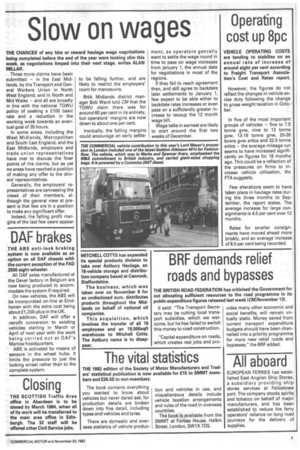Slow on wages
Page 5

If you've noticed an error in this article please click here to report it so we can fix it.
THE CHANCES of any hire or rew being completed before the end of week, as negotiations limped into MILLAR. ard haulage wage negotiations the year were looking slim this their next stage, writes ALAN Three more claims have been submitted — in the East Midlands, by the Transport and General Workers Union in North West England, and in North and Mid Wales — and all are broadly in line with the national TGWU policy of seeking a 6100 basic rate and a reduction in the working week towards an eventual goal of 35 hours.
In some areas, including the West Midlands, Metropolitan and South East England, and the East Midlands, employers and trade union representatives have met to discuss the finer points of the claims, but as yet no areas have reached a position of making any offer to the drivers' representatives.
Generally, the employers' representatives are canvassing the views of their members, although the general view at present is that few are in a position to make any significant offer.
Indeed, the falling profit margins of the last few years appear to be falling further, and are likely to restrict the employers' room for manoeuvre.
RHA Midlands district manager Bob Ward told CM that the TGWU claim there was for around 60 per cent in its entirety, but operators' margins are now down to about one per cent.
Ironically, the falling margins could encourage an early settle ment, as operators genrally want to settle the wage round in time to pass on wage increases from january 1, the annual date for negotiations in most of the regions.
If they fail to reach agreement then, and still agree to backdate later settlements to January 1, few expect to be able either to backdate rates increases or even pass on a sufficiently greater increase to recoup the 12 month wage bill.
Wage talks in earnest are likely to start around the first two weeks of December.












































